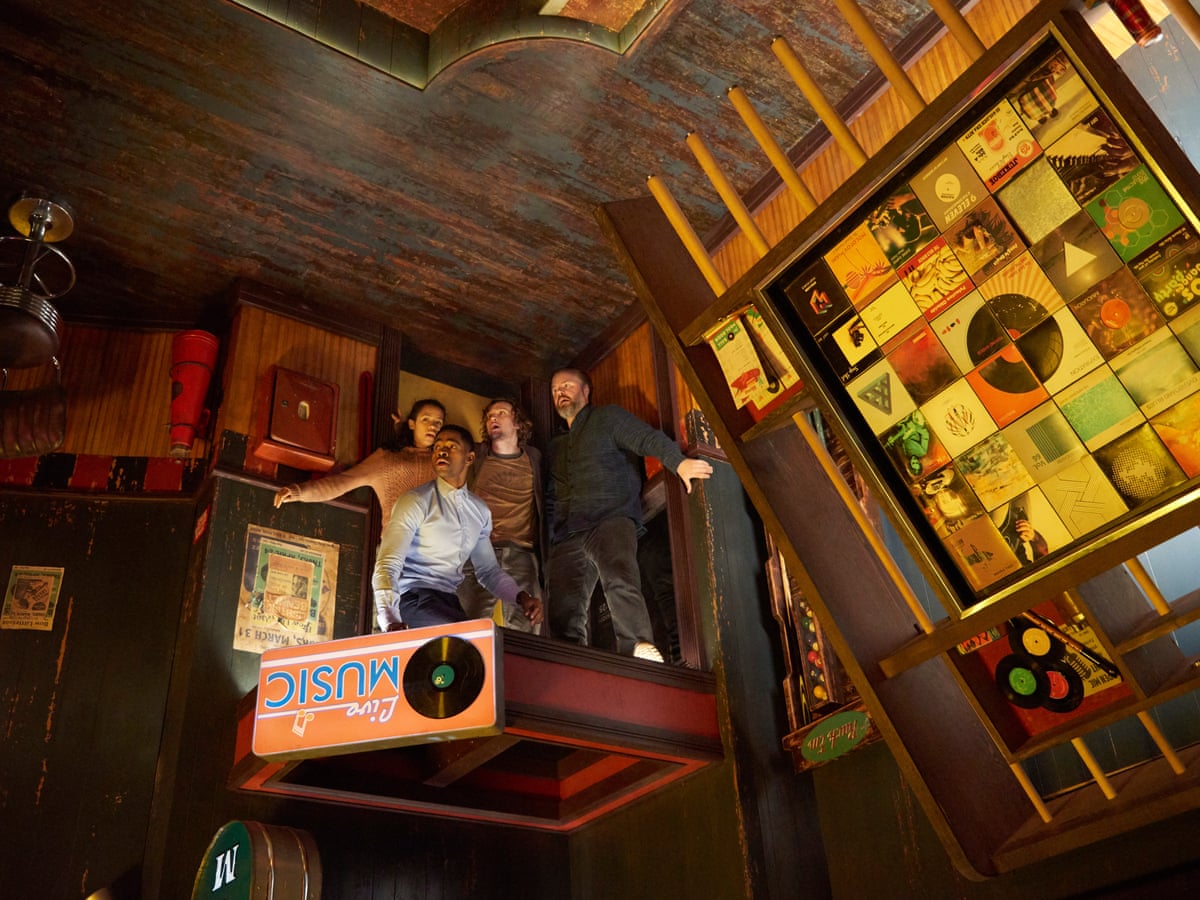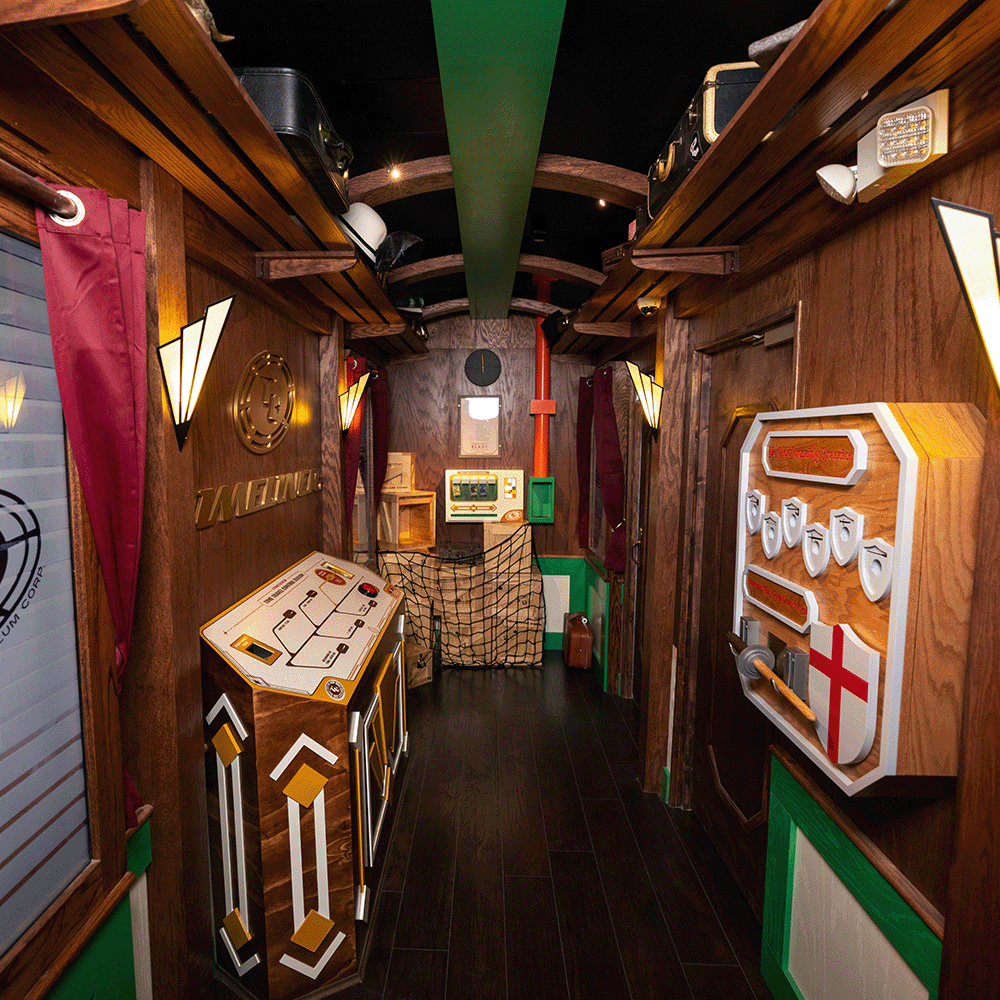Best Escape Room Experience-- Exciting Games and Puzzles for Teams
Best Escape Room Experience-- Exciting Games and Puzzles for Teams
Blog Article
Group Approaches: How to Team up Effectively in a Retreat Space
Groups have to actively pay attention to each participant's insights, appoint functions that line up with specific staminas, and preserve regular check-ins to make sure emphasis and prevent redundancy. By promoting a setting that values communication and flexibility, groups can substantially increase their performance and success prices.
Establish Clear Interaction

To promote clear communication, it is crucial to mark a main factor of call for details circulation. Brief, focused updates from each team participant can maintain the group informed without overwhelming them with details.

Appoint Duties Purposefully
While clear interaction sets the foundation for efficient teamwork, assigning roles purposefully makes certain that each staff member's staminas are used successfully. In a retreat area circumstance, the time-sensitive and intricate nature of challenges requires an efficient technique to task delegation. By determining and leveraging specific expertises, groups can optimize their problem-solving capacities and improve general performance.
Somebody with a keen eye for detail might succeed in discovering concealed items, while a rational thinker might be much better fit to fixing problems. This role commonly needs strong organizational and interpersonal skills.
2nd, make sure that functions are versatile and versatile. As new obstacles arise, the group should have the ability to pivot, reapportioning tasks as called for. This adaptability aids keep momentum and prevents bottlenecks that can happen because of inflexible role tasks.
Inevitably, a strategic method to role assignment not only takes full advantage of the toughness of each group member yet also fosters a cohesive atmosphere, driving the group in the direction of an effective escape.
Use Diverse Skills
Recognizing and utilizing the varied skills within your group can substantially boost your efficiency in a retreat area. Each team participant brings distinct toughness to the table, and effectively leveraging these capabilities can quicken problem-solving and boost general effectiveness. A team participant with solid analytical abilities may stand out at decoding complicated codes or patterns, while an additional with keen empirical abilities might swiftly identify concealed clues that others could ignore.
Urge group participants to articulate their insights and ideas quickly, guaranteeing that all potential solutions are considered. Additionally, appointing jobs that straighten with each participant's staminas can avoid bottlenecks and ensure that progression is continual.
Additionally, diversity in skills often converts to variety in believing designs, which basics is invaluable in a retreat space setup. While some challenges might need rational reasoning and accuracy, others could take advantage of imaginative and association of ideas. By acknowledging and leveraging this diversity, groups can attend to a wider range of obstacles better, thereby boosting their possibilities of an effective getaway.
Manage Time Effectively

Identify noticeable challenges and divide jobs based on group members' toughness, making sure that nobody is idle. This technique can assist keep the group focused and protect against time from sliding away unnoticed.
In addition, prevent one-track mind. If a challenge is taking too long, revolve team members or relocate on to one more challenge, returning later on with fresh perspectives. Interaction is critical-- maintain everyone upgraded on resolved problems and remaining jobs to avoid repetitive efforts.
Finally, utilize any type of hints or hints moderately however purposefully - best escape room. Knowing when to request for their website help can conserve valuable time. By adhering to these time monitoring principles, groups can significantly enhance their chances of a successful and delightful escape space experience
Debrief and Mirror
Reflection is a necessary aspect of team growth and improvement in the context of getaway spaces. As soon as the challenge is completed, whether efficiently or not, it is important for the team to take part in an organized debriefing session. This process permits group members to evaluate their efficiency, recognize strengths, and pinpoint areas for enhancement.
Start the debrief by reviewing what worked out. Highlight specific instances of efficient interaction, problem-solving, and collaboration. Acknowledging these positive habits enhances them and urges their rep in future challenges.
Review minutes of complication, miscommunication, or inefficient methods. Motivate an open and useful dialogue where team participants can share their viewpoints without i loved this concern of criticism.
Final Thought
To conclude, successful cooperation in a retreat space is asserted upon clear communication, strategic duty tasks, the efficient utilization of varied abilities, and efficient time administration. Regular check-ins and organized debriefings are necessary for preserving emphasis and cultivating constant improvement. By developing a cohesive and adaptive group environment, the chance of effectively resolving problems and accomplishing the objective of running away the space is significantly boosted. This method not just makes sure success but likewise promotes cumulative growth and discovering.
Report this page